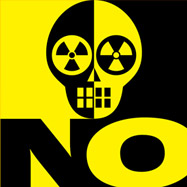Proliferation and Emerging Nuclear Order in the twenty-first century
- Publisher: Academic Foundation
2009
This book provides some important perspectives on the emerging nuclear order. The contributors discuss most burning questions of the day: What are the challenges to the global nuclear regime? What are the consequences of a nuclear Iran for West Asian peace and stability? Will it give rise to a nuclear quest among the important West Asian states?
- ISBN 13-978-81-7188-752-1,
- Price: ?. 595 /-













